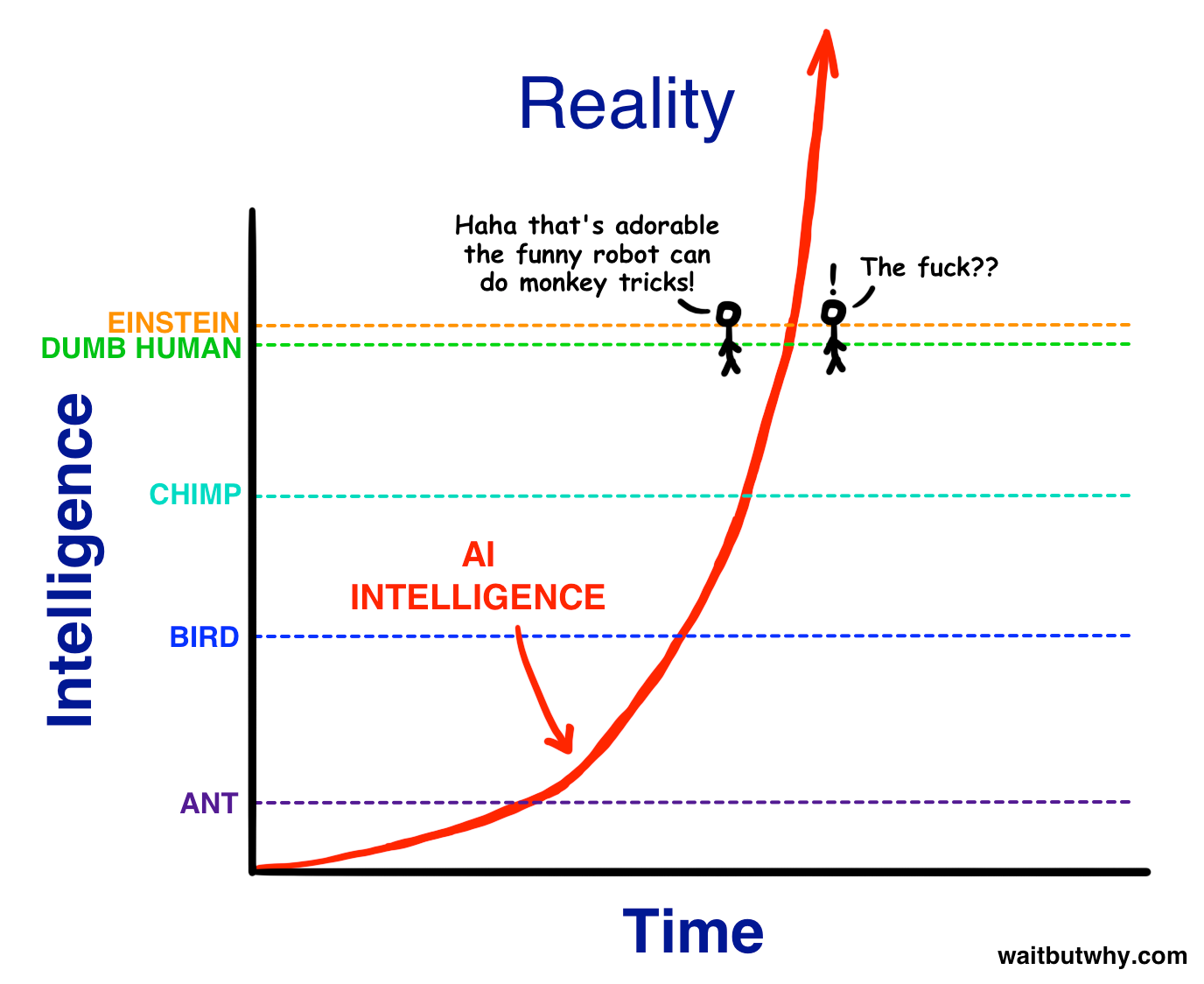Building Relationships
Learn why relationships fail and unveil the secret to lasting connections. This issue is about leadership, artificial intelligence, and music.

In many modern first-world societies, relationships are often built on a foundation destined for failure. People come together primarily to fulfill immediate desires—pleasure, satisfaction, and sensory stimulation. They spend their time engaging in activities like clubbing, dancing, drinking, binge-watching TV, going on vacation, and having sex, all futile stimuli disconnected from any natural productive purpose.
While all these consumptive activities may bring short-term enjoyment, they avoid addressing the critical questions that form the basis of any successful long-term relationship: family, children, financial security, long-term aspirations, religion, and beliefs. After weeks, months, or even years of consuming and stimulating their senses together, couples finally begin to seriously tackle these essential topics. By then, the likelihood that their deeper aspirations align is very low.
Their shared experience has been one of consumption and stimulation, not of meaningful connection and mutual productive goals. Modern first-world societies call that “falling in love.” Ironically, nothing could be further from love than wanting to get one’s own desires satisfied by a partner. And shifting the basis of a relationship from superficial pleasures to substantial matters is prone to failure.
After the old relationship has died, the next one is ready to take off with just the same pattern: a never-ending cycle of jumping from relationship to relationship, discarding partners like old underwear. Sooner or later, they start wondering why it seems so difficult to find a good match, only to discover time and again that there is no alignment in the basic departments.
- After two years into the relationship, it turns out one partner doesn’t want children. Classic. How can such a fundamental difference just “turn out” after having sex hundreds of times?
- Another couple bonded over their love for nightlife, spending every weekend partying. A few weeks after moving in together, they realized they have different views on financial management. One partner is a saver with a stable job, the other a spender, living somewhere between government support and paycheck to paycheck. Great.
- And then there’s the couple that bonded over their mutual desire for traveling, only to find out that one of them actually seeks to settle down in one place, while the other wants to maintain the nomadic lifestyle.
The root of the problem lies in the nature of how relationships are initially formed. What is the solution?
You discuss the important topics from the very beginning. This approach is crucial, especially in times when societies far beyond their zenith crumble, and grown societal structures like family, marriage, religion, and other traditions that provide meaning and structure are going through substantial changes. Start these conversations even before you get intimate. When you first meet or even over the phone or through text, talk about family, children, and long-term dreams.
On the other hand, your current job, your favorite music or movie, your favorite drink or travel destination—all these things are secondary. Why? Because they’re evanescent phenomena that change in the blink of an eye.
Of course, this advice doesn’t apply to quick flings, which have their own place. But assuming you ultimately seek a relationship that goes beyond a fleeting encounter, you must address the heavy topics immediately.
If you met someone in a club you vibe with but generally want to develop meaningful connections, the conversation the next morning should be about the critical issues. Sure, you can continue going out for dinner and having sex, but know that for any healthy long-term relationship, you must discuss the basic alignment before developing comfortable financial or sexual dependencies.
If you start building your relationship on consumptive behavior, the chances that your core aspirations align later on are very low.
We’ve been conditioned to seek out matches for completely irrelevant characteristics, distorting the core reasons and purposes of intersexual relationships. Who cares whether you two listen to the same kind of music or have the same hobbies? In fact, having different preferences for consumptive and leisure activities will help to maintain stability by keeping personal spaces distinct. What truly matters is alignment in long-term, productive goals.
It might sound counterintuitive and intimidating to dive into serious topics right away. However, if you want the genuine, real thing, you must be genuine and real from the start. Discuss your deepest desires and long-term aspirations immediately. Avoid conversations centered around consumption and effortless pleasures. Focus on topics that require effort, creativity, and productivity.
You’ll be amazed at how positively people respond to the allegedly turn-off “heavy topics,” even if you discover there’s no alignment. Because ultimately, our human desires and needs are quite similar and uniform. And if the person you’re talking to is actually turned off? Worry not. This method effectively filters out anyone who does not share your life aspirations and saves you weeks, months, if not years, of time wasted.
Have a phenomenal week!
⏤Ferdinand
✨ Sparks
📝 Article: Solitude and Leadership
In this delicious article, William Deresiewicz expands on the qualities of leadership and how to effectively develop them by cultivating solitude through introspection, concentration, and effective discourse in relation to contemporary etiquette, formalities, material day-to-day requirements, social media, and other distractions.
So what I saw around me were great kids who had been trained to be world-class hoop jumpers. Any goal you set them, they could achieve. Any test you gave them, they could pass with flying colors. They were, as one of them put it herself, “excellent sheep.”
That’s really the great mystery about bureaucracies. Why is it so often that the best people are stuck in the middle and the people who are running things—the leaders—are the mediocrities? Because excellence isn’t usually what gets you up the greasy pole. What gets you up is a talent for maneuvering. Kissing up to the people above you, kicking down to the people below you. Pleasing your teachers, pleasing your superiors, picking a powerful mentor and riding his coattails until it’s time to stab him in the back. Jumping through hoops. Getting along by going along. Being whatever other people want you to be, so that it finally comes to seem that, like the manager of the Central Station, you have nothing inside you at all. Not taking stupid risks like trying to change how things are done or question why they’re done. Just keeping the routine going.
I tell you this to forewarn you, because I promise you that you will meet these people and you will find yourself in environments where what is rewarded above all is conformity. I tell you so you can decide to be a different kind of leader.
We have a crisis of leadership in America because our overwhelming power and wealth, earned under earlier generations of leaders, made us complacent, and for too long we have been training leaders who only know how to keep the routine going. Who can answer questions, but don’t know how to ask them. Who can fulfill goals, but don’t know how to set them. Who think about how to get things done, but not whether they’re worth doing in the first place. […]
What we don’t have, in other words, are thinkers. People who can think for themselves. People who can formulate a new direction
Multitasking, in short, is not only not thinking, it impairs your ability to think. Thinking means concentrating on one thing long enough to develop an idea about it. Not learning other people’s ideas, or memorizing a body of information, however much those may sometimes be useful. Developing your own ideas. In short, thinking for yourself. You simply cannot do that in bursts of 20 seconds at a time, constantly interrupted by Facebook messages or Twitter tweets, or fiddling with your iPod, or watching something on YouTube.
I find for myself that my first thought is never my best thought. My first thought is always someone else’s; it’s always what I’ve already heard about the subject, always the conventional wisdom. It’s only by concentrating, sticking to the question, being patient, letting all the parts of my mind come into play, that I arrive at an original idea. By giving my brain a chance to make associations, draw connections, take me by surprise. And often even that idea doesn’t turn out to be very good. I need time to think about it, too, to make mistakes and recognize them, to make false starts and correct them, to outlast my impulses, to defeat my desire to declare the job done and move on to the next thing.
Concentrating, focusing. You can just as easily consider this lecture to be about concentration as about solitude. Think about what the word means. It means gathering yourself together into a single point rather than letting yourself be dispersed everywhere into a cloud of electronic and social input. It seems to me that Facebook and Twitter and YouTube—and just so you don’t think this is a generational thing, TV and radio and magazines and even newspapers, too—are all ultimately just an elaborate excuse to run away from yourself. To avoid the difficult and troubling questions that being human throws in your way. Am I doing the right thing with my life? Do I believe the things I was taught as a child? What do the words I live by—words like duty, honor, and country—really mean? Am I happy?
Thinking for yourself means finding yourself, finding your own reality. Here’s the other problem with Facebook and Twitter and even The New York Times. When you expose yourself to those things, especially in the constant way that people do now—older people as well as younger people—you are continuously bombarding yourself with a stream of other people’s thoughts. You are marinating yourself in the conventional wisdom. In other people’s reality: for others, not for yourself. You are creating a cacophony in which it is impossible to hear your own voice, whether it’s yourself you’re thinking about or anything else.
So why is reading books any better than reading tweets or wall posts? Well, sometimes it isn’t. Sometimes, you need to put down your book, if only to think about what you’re reading, what you think about what you’re reading. But a book has two advantages over a tweet. First, the person who wrote it thought about it a lot more carefully. The book is the result of his solitude, his attempt to think for himself.
Second, most books are old. This is not a disadvantage: this is precisely what makes them valuable. They stand against the conventional wisdom of today simply because they’re not from today. Even if they merely reflect the conventional wisdom of their own day, they say something different from what you hear all the time. But the great books, the ones you find on a syllabus, the ones people have continued to read, don’t reflect the conventional wisdom of their day. They say things that have the permanent power to disrupt our habits of thought. They were revolutionary in their own time, and they are still revolutionary today.
📝 Article: The AI Revolution (1, 2)
Another great piece of writing from Tim Urban in the double feature The Road to Superintelligence and Our Immortality or Extinction, assessing the development of artificial intelligence in relation to human intelligence and discussing its impacts and consequences.

🎵 Music: Chopin Nocturne No. 20, in C Sharp Minor
The Madrid airport offers an astounding number of pianos free to play. While I was sitting in a lounge area, going through the weekly review of my calendar and action items while waiting for a connecting flight to Rome, the enchanting sound of one of my favorite piano pieces touched my ear as an obviously professional player decided to give a free concert.
Frédéric Chopin, Nocturne No. 20 in C-sharp minor, Op. posth., Lento con gran espressione, composed in 1830 and published in 1875, 21 years posthumously.
💡 This Week’s Wisdom
Until the late modern era, more than 90 per cent of humans were peasants who rose each morning to till the land by the sweat of their brows. The extra they produced fed the tiny minority of elites – kings, government officials, soldiers, priests, artists and thinkers – who fill the history books. History is something that very few people have been doing while everyone else was ploughing fields and carrying water buckets.
From Sapiens by YUVAL NOAH HARARI.
Captured and resurfaced using the phenomenal Kindle reader.
Did you enjoy this issue? If you draw value from Sunday Sparks please consider contributing to this publication’s financial freedom.
Flows straight into content, not coffee.





